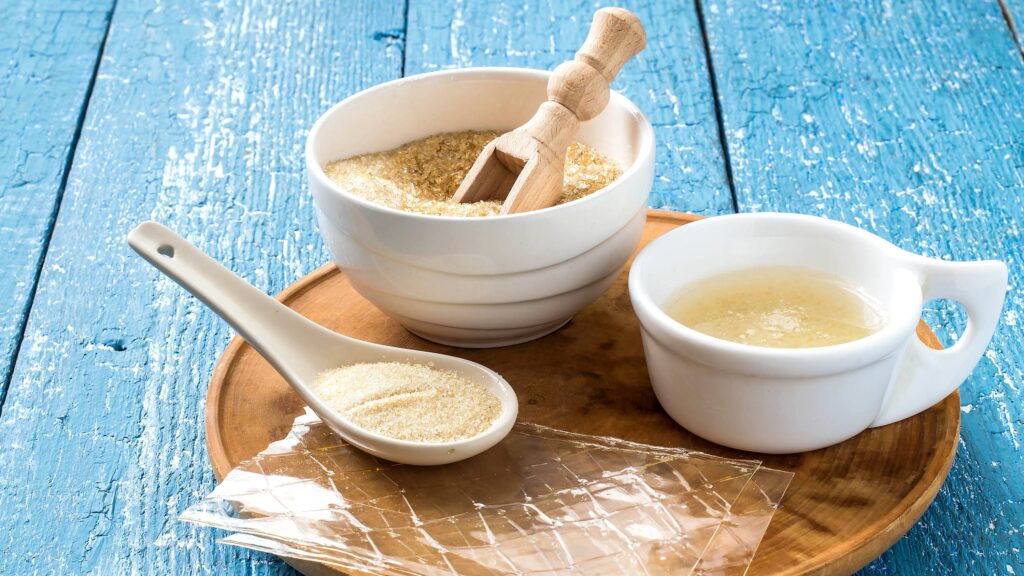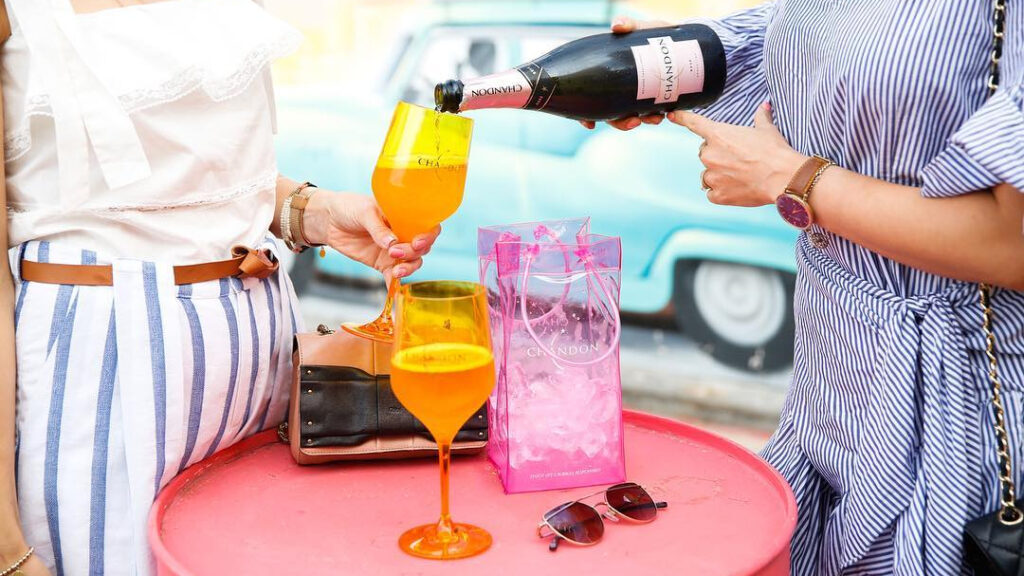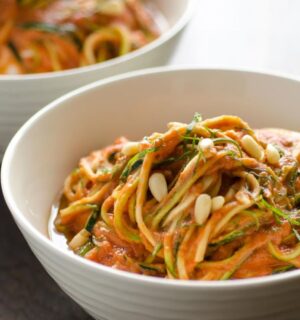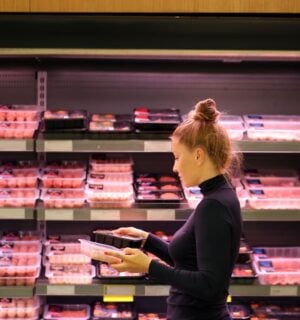Advertisement
The glug of a bottle of wine pouring effortlessly into a glass is a sound that echoes into the souls of millions across the globe. But is wine vegan?
Long, bustling days and stuffy commutes are often spent dreaming of a glass a wine at the end of it all. Indeed, whether a delicate Provence rosé or a tropical Marlborough sauvignon blanc, wine brings relaxation, good feels, and so much more.
Behind eclectic bars lay bubbles eagerly awaiting an overdue catch up with a best friend. It is relief, the start of weekends, the perfect accompaniment to a meal.
However, there are complicated processes behind that perfect Pinot. Some of these involve animal products. Here’s everything you need to know.
Wine production
Wine is made from ripe grapes plucked fresh off the vine. Next, the production process begins:
- Grapes are crushed and pressed;
- Fermentation begins to allow sugar to turn into alcohol;
- The liquid is clarified and transferred into barrels;
- Filtration happens next, which is common but not necessary;
- The wine is either bottled immediately or barrel-aged.
So it would seem, based on those steps, wine is vegan then, isn’t it?
What customers aren’t often told is that the winemaking process commonly involves several animal-derived ingredients including blood, fish bladders, gelatin, eggs, and milk protein.
Importantly, it is during filtration when this occurs.
However, despite this, vegan wines are on the rise. Additionally, celebrities such as Cameron Diaz and Cara Delevingne have brought out their very own bottles with soaring sales.
What’s really in wine?
There are several parts of the winemaking process that utilize animal products, meaning a vast number of wines — red, white, and rosé — aren’t vegan.
Animal products are commonly used during fining, according to vegan YouTube sommelier Nicole Vranjican, also known as NikkiVegan.
The yeast from the grapes feeds on the sugar inside the grapes, which is when fining happens, says Vranjican.
“Egg whites or fish bladders are often used to collect the dead yeast. But, there are vegan-friendly ways to do this too,” Vranjican told Plant Based News..
“Using bentonite clay is one example and many winemakers use these vegan-friendly ingredients for reasons that have nothing to do with creating a vegan product.”
Animal products in wine
Eggs, casein, gelatin, and isinglass are common wine fining agents. As they’re removed before bottling, they don’t have to be labeled.
Bristol-based wine expert and vegan Emma Stowell, who runs Vegan Wine Box, says the use of animal-based fining agents is debated in the wine world.
She says the process typically rids wines of unpleasant aromas and tastes.
Animal-based fining agents include:
Egg whites
Egg whites are used to remove sediment that slips through the filtration process. Sediment and tannins stick to the egg whites.
One barrel of wine can use several egg whites, they’re removed after fining is complete.
Casein
Casein is the main protein in cow’s milk. It removes unwanted sediment common in white and sparkling wines.
According to the Australian Wine Research Institute (AWRI), casein prevents oxidation and helps reduce bitterness. Additionally, it removes unwanted colors caused by sediment.

Gelatin
Gelatin is made by boiling pig and cow tendons into a gelatinous substance. Its use in wine is to remove bitterness from red varietals.
The AWRI says it’s the most ‘aggressive’ of the protein-based fining agents.
Isinglass
Isinglass is another popular method for filtering wine. It comes from the swim bladders of fish. Isinglass helps prevent cloudiness in wine and beer. In addition, it removes protein and yeast.
Where can I find vegan wine?
In recent years, demand for vegan wines has skyrocketed, with Harpers estimating the market being worth £1.5 billion.
Many large retailers have separate tabs to make things easier for vegan shoppers, which reflects the plethora of more plant-based products now available on the market.
Supermarkets in the UK responded to the trend, with Tesco adding an array of vegan bottles as part of its Finest range. Additionally, SPAR rolled out its own affordable vegan wine range. The Co-op followed suit.
The Vegan Society explains it is becoming increasingly common for supermarkets to label their wines vegan.

The Vegan Society suggests plant-based customers find wine by looking for the vegan trademark – a list of which can be found here.
A handy tool for finding vegan wine, including those without the vegan trademark, is Barnivore. The website contains a large database of different brands and informs users whether they’re vegan.
Vegan Wine Box’s Emma Stowell suggests asking at your local independent wine store, ‘they will tend to have lists of which of their wines are vegan even if they aren’t labeled’.
Labels
In the US, it is not mandatory for a winemaker to put much info on wine bottle labels, and that includes noting whether or not the wines have been made using animal-derived fining agents. However, in the UK, the government only calls for wine labeling to list allergens. Ingredients include eggs and milk. Unfortunately, this does not include gelatin or isinglass.
Countries such as South America and Georgia traditionally use bentonite clay as a fining agent. However, they don’t always print it on the bottle. This is an example of the confusing labeling process, Stowell explains.
Winemakers from countries where veganism isn’t as popular, ‘wouldn’t even consider’ labeling their bottles as such, she adds. Thankfully, sellers including Stowell are working with winemakers globally to resolve this.
Top vegan wine you can buy
These wines suit all tastes and budgets, and most importantly: they’re all vegan. With a large market full of options, picking our favorites was a tricky task.
1. Proudly Vegan
This award-winning wine producer stocks in the UK, and launched in the US in 2019. The brand proves there is no compromise on the palate with vegan wines – whether a fruity Chilean merlot is your bag or a crisp sauvignon blanc.
To search for stockists near you, visit Proudly Vegan’s website.
2. Las Dalias Malbec
UK supermarket M&S stocks a bulk of vegan wines. At the top of its vegan bestseller list for the reds currently sits the Las Dalias Malbec with customers branding it a ‘smooth operator’ for its plum and bramble flavors. A bottle of this Argentinian malbec will cost you £9.
Order online.
3. Bellissima Prosecco
Made in the vineyards north of Venice, Italy, Bellissima Prosecco is not only vegan but organic as well. In addition, the brand uses eco-friendly packaging.
Customers in the US can order online.

4. Lidl Winemaker’s Selection Coonawarra Cabernet Sauvignon
Given a high score of 89 out of 100 by Decanter, the German discount supermarket chain’s Coonawarra cabernet sauvignon wound up on a list of vegan favorites compiled by Which.
Order online via Lidl.
5. Definition Chardonnay 2019, Limoux
The UK’s largest wine retailer, Majestic, lists the Definition’s aromatic oaked chardonnay as a customer favorite. This could easily be down to its notes of peach and vanilla. It’s from the Limoux region in France, which is where wines are more concentrated.
It’s currently on offer on their website.
6. Chandon Rose Sparkling Wine
Juicy watermelon and strawberry flavors envelop this Argentinian chardonnay. It’s one of NikkiVegan’s favorites and she assures us it’s ‘incredibly delicious’.
Order on their website, or from a range of retailers around the world.

7. Vegan Wine Box
Looking to order in bulk? The UK’s widely renowned vegan ‘capitol’ — Bristol — is home to a pair of vegan wine suppliers.
You can order a mixed box of vegan wines online.














